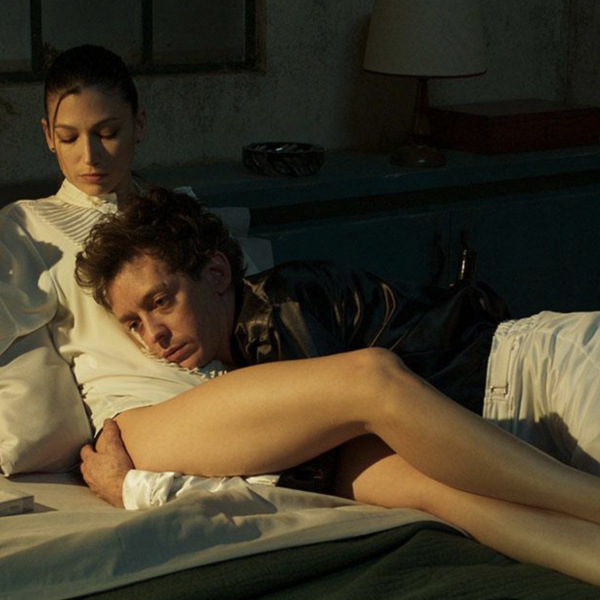“Hit Man” is writer/director Richard Linklater’s most commercial film since “School of Rock.” While the indie icon has enjoyed some mild box office successes in his 30-year-plus career, those have largely been the product of overwhelmingly positive critical reception and the longtail word-of-mouth that accompanies a beloved gem like “Boyhood.”
But that’s not “Hit Man.” Linklater combines the fun of a screwball comedy, the twists and turns of a crime film, and a sexy romance featuring the magnetic charm of Glen Powell in a role that announces him as a full-blown movie star after having carried (along with co-star Sidney Sweeney) the surprise rom-com hit “Anyone But You” this winter, and ahead of anchoring the studio tentpole “Twisters” this summer.
“Hit Man,” which won over critics and audiences at the Venice and New York Film Festival, will almost certainly find its audience, but it won’t be in theaters, and it won’t translate to box office. That’s because the film’s marketing and publicity team treated its limited, two-week, 45-screen, 20-city theatrical release as simply a warm-up to what it views at the film’s real premiere: streaming to Netflix’s 270 million global subscribers.
The issue for Linklater isn’t Netflix, its model, or that the company stepped up and bought “Hit Man,” paying a reported $20 million after its Venice premiere.
“How about Universal or Warner Brothers? I look at the studios, if anyone wants to cast blame,” said Linklater in an interview with IndieWire. “The indie film [world], to me, seems to have the same goals that it’s always had: to show films and try to find an audience somewhere. It’s the studio world, to me, that’s changed the most. They’ve abdicated a kind of filmmaking. They’re not interested in even making this type of film [anymore]. They’re not interested in adult entertainment.”

To Linklater’s point, it’s not hard to imagine a recent past when a studio would have developed, financed, and distributed a potential crowdpleaser like “Hit Man.” But what dismayed Linklater was how the increasingly risk-averse studios walked away from a finished product after it had been successfully tested.
“It was a very mild bidding situation; they could have had us,” said Linklater. “But this is something even at a script level they rejected. They rejected it as a finished film with audiences applauding and a critical response. They still looked at it and said, ‘Mmmm, this isn’t what we do.’”
This leads Linklater to ask, “So the real question here is, the studios need to explain: ‘OK, well, so what do you want?’” He knows it’s a rhetorical question, and answering it himself, it’s established IP. “The times bend against whatever originality we have, that scares them… To me, that’s what’s changed, that they’ve really figured out what they don’t do, and that’s the world we knew. It’s a reduced world, for sure. You need that middle to step up, but right now, it’s Netflix, and the streamers are in that space.”
Linklater is by nature an optimist and catches himself in the interview somewhat bumming himself out while talking about a film he’s genuinely excited about getting put out in the world. Slightly switching gears, he adjusts himself in his seat, and not unlike one of his characters, starts looking at it from the other side, contemplating if things are really worse.
“I’ve never been good at the industry analysis. I just know, having had my toe in the industry for 30 years plus now, it’s just always changing and it’s always kind of shitty [laughs], and it’s always everybody kind of tweaked out cause it’s threatened,” said Linklater. “Every time I get a chance to finally realize a movie, I’m super grateful because I’ve sat on the bench here and there over 30 years, where I just couldn’t quite get what I wanted made and have had to shift to something else. So that can be frustrating. So when it seems to be lining up, and I can get my next film made, I’m a happy guy.”
And Linklater has a lot to be happy about recently, having been invigorated by recently shooting “Nouvelle Vague,” his film about Jean-Luc Godard going from critic to making “Breathless,” and starting another multiyear “Boyhood”-like project with “Merrily We Roll Along,” a 20-year production that he won’t wrap until he’s in his early 80s.
“Hit Man” hits Netflix on June 7.



